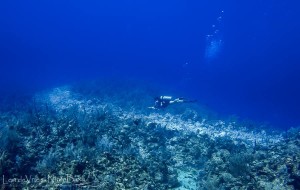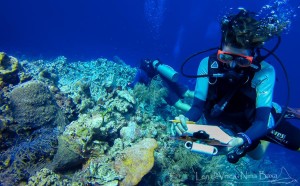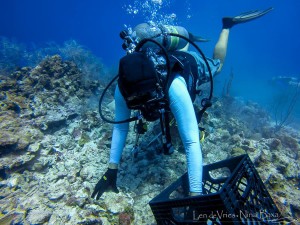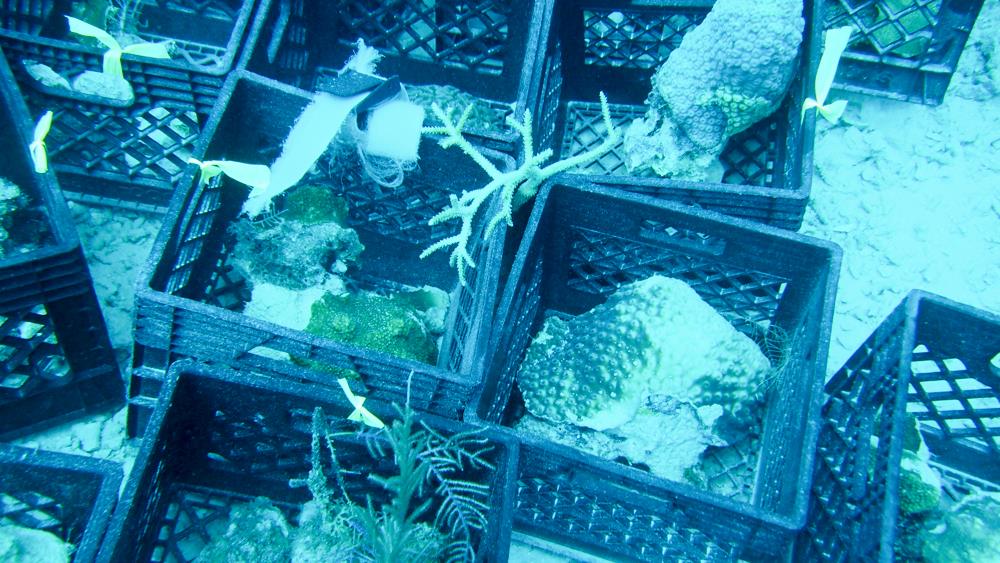Marine Life & Conservation
Cayman Dive Operators And Volunteers Work Against Time To Restore Damaged Coral Reef
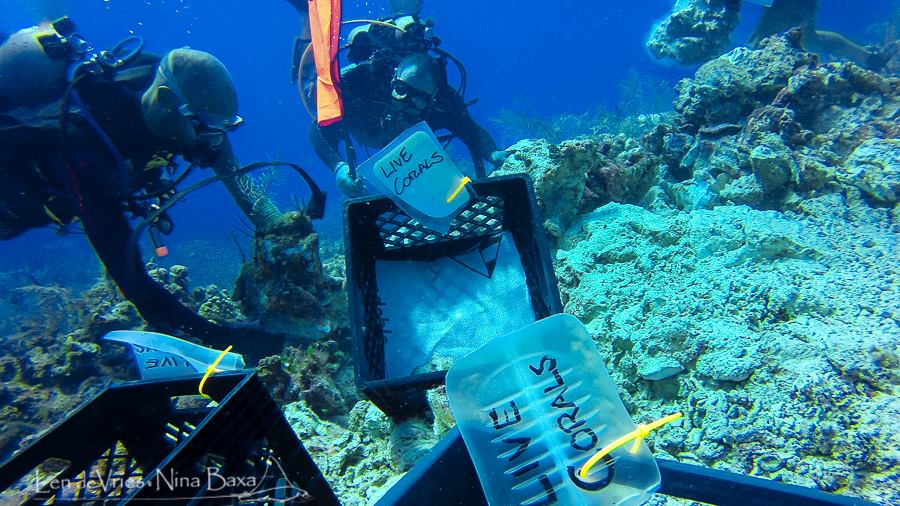
CORAL REEF DEVASTATED BY CRUISE SHIP’S ANCHOR
In the waters off George Town, Grand Cayman, a group of approximately 50 volunteer divers led by local dive operators, and guided by the Cayman Islands Department of Environment (DOE), are working tirelessly to repair a coral reef severely damaged by a cruise ship anchor in mid-August. Working in teams with designated leaders, following project coordinators under the direction of the DOE, the divers are carefully removing the rubble, dead coral and sediment, crate by crate, knowing that time is critical.
“Right now it’s basic triage, and any live corals are being put aside for reattachment once the rubble is removed,” says Ocean Frontiers’ Lois Hatcher, who is trained and experienced in coral restoration. “Every day that goes by, more coral that is buried or heavily covered in sediment, is suffocating. They need sunlight and a stable substrate to survive, so the longer they are unstable, the survival rate decreases.”
Hatcher and Keith Sahm, Sunset House General Manager, are coordinating the structured project, guided by the Department of Environment. They are making sure the work is done carefully, methodically and safely. Both stepped up after they heard the news that the Carnival Magic accidentally dropped its anchor on the dive site. Frustrated by lack of immediate action, Sahm organized an emergency meeting on the 18th September at Sunset House and an overflow crowd of volunteers showed up motivated and ready to go to work knowing that time is critical and government manpower is short. Two days after the meeting, the volunteers made their first dive on the site, saw the extent of the damage and realized what they are up against.
“The chain damage is just terrible! The captain had let out 5 shots of chain – about 450 feet – with each link weighing between 50 – 100 pounds,” says Keith Sahm. “It’s a sickening feeling to know that thousands and thousands of years of coral growth has been demolished by an error in judgment, or mechanical problems.”
“A lot of man-hours are needed to restore a reef – first with the triage, then the reattachment and maintenance,” says Lois Hatcher, adding that it could take up to a year to complete. “We are also hoping to start a couple of nursery trees for the long-term keeping of live coral fragments, as they grow faster this way and can then be used to embellish what coral was replanted.
The goal is to execute a coral restoration project similar to the one carried out in 1996 when the Maasdam cruise ship dropped its anchor on a shallow dive site in George Town damaging 7500 square feet of the reef. That restoration project, conducted by local divers, including Lois Hatcher and the Department of Environment, took about 9,000 hours of underwater work over three months. Officials say that coral bed could take more than sixty years to grow back. The Carnival Magic has damaged almost 12,000 square feet of reef located in deeper water, so the volunteer army has its work cut out for it.
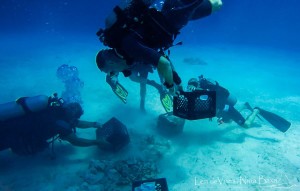 “We are all just volunteers, so I applaud absolutely everyone’s effort here,” says Sahm. “Thank goodness we have folks like Peter Milburn and Lois Hatcher that worked on the 1996 project and are still here to help. And a special thanks to the Marine Conservation Board for easing guidelines and laws so we can do this restoration work – it’s unlawful for anyone to touch or pick up coral, dead or alive in the Cayman Islands. We wouldn’t be able to do this important work without the help of the Board and Department of Environment.”
“We are all just volunteers, so I applaud absolutely everyone’s effort here,” says Sahm. “Thank goodness we have folks like Peter Milburn and Lois Hatcher that worked on the 1996 project and are still here to help. And a special thanks to the Marine Conservation Board for easing guidelines and laws so we can do this restoration work – it’s unlawful for anyone to touch or pick up coral, dead or alive in the Cayman Islands. We wouldn’t be able to do this important work without the help of the Board and Department of Environment.”
The restoration work is difficult and exhausting, but everyone involved knows it will pay off in the years to come. While the dive site won’t be what it was originally, restoration can at least make the reef stable enough to sustain life again. The rubble also needs to be removed as soon as possible to prevent further damage when the next big storm kicks up.
While an investigation into the Carnival Magic incident is conducted, the repair work at the site continues non-stop and to date, more than 20 dives have been made, and volunteers have put in 150 man-hours. Communication and coordination are done through a Facebook page that now has 265 followers. Boat trips are scheduled and volunteers, both locals and visitors, can sign up to help. The challenge for Sahm and Hatcher will be keeping up the enthusiasm and pace of the repair work during the months ahead.
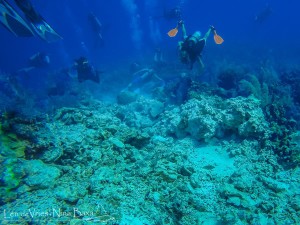 According to the Coral Restoration Foundation(CRF), a nonprofit conservation organization, the key to a successful project is to engage the community, something that is now taking place on Grand Cayman. Sunset House, Ocean Frontiers, Red Sail Sports, Divetech, Don Foster’s Dive and other local operators are providing boats and tanks for the dozens of volunteer divers. Southern Cross Club staff in Little Cayman will participate during an upcoming trip to Grand Cayman. Foster’s Food Fair, a local grocer, has donated the plastic milk crates being used to remove the rubble, while the local Subway has provided free sandwiches for the restoration crew. The hope, according to Sahm and Hatcher, is to encourage long-term involvement and partnerships that will keep the momentum going.
According to the Coral Restoration Foundation(CRF), a nonprofit conservation organization, the key to a successful project is to engage the community, something that is now taking place on Grand Cayman. Sunset House, Ocean Frontiers, Red Sail Sports, Divetech, Don Foster’s Dive and other local operators are providing boats and tanks for the dozens of volunteer divers. Southern Cross Club staff in Little Cayman will participate during an upcoming trip to Grand Cayman. Foster’s Food Fair, a local grocer, has donated the plastic milk crates being used to remove the rubble, while the local Subway has provided free sandwiches for the restoration crew. The hope, according to Sahm and Hatcher, is to encourage long-term involvement and partnerships that will keep the momentum going.
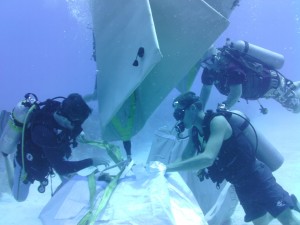 “This is something we really need to do as a community, try to repair the damage to this beautiful reef,” says Hatcher. “If nobody’s going to be held accountable for this, we have to be accountable for it.”
“This is something we really need to do as a community, try to repair the damage to this beautiful reef,” says Hatcher. “If nobody’s going to be held accountable for this, we have to be accountable for it.”
Team leaders and coordinators met with a Department of Environment officer on Monday for a project review, and according to the DOE, the results are encouraging because of the progress that has already been done.
The project has an on-going need for more volunteers. Anyone interested in helping is asked to visit the Facebook page Cayman Magic Reef Recovery where volunteer dives and updates are continually posted.
Marine Life & Conservation
Experience the Greatest Shoal on Earth followed by few nights with Sharks next month at some really great rates with Seas4Life (Watch Video)
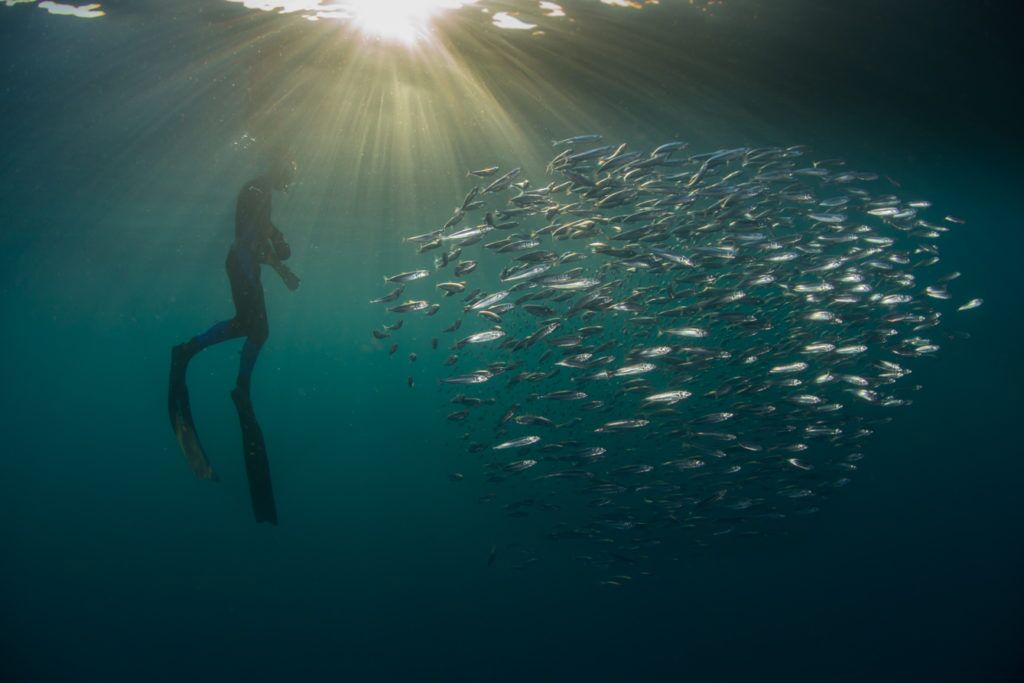
An Exclusive, Expert Led, One-Off experience…
For just a few short weeks each year – end of May through to end of June – the mighty Sardine Run showcases the epic efforts of supreme marine predators working in unison to feed off the migrating sardines in a most dynamic flurry of action. End of June early July is also when the shark season begins – just imagine it is a David Attenbourgh Blue Planet experience.
In case this natural wonder wasn’t exciting enough – majestic humpback whales just happen to start their annual migration back up north adding to this phenomenal experience.
Its a must for the adventurous soul.. Lots of love, laughter, and smiles.
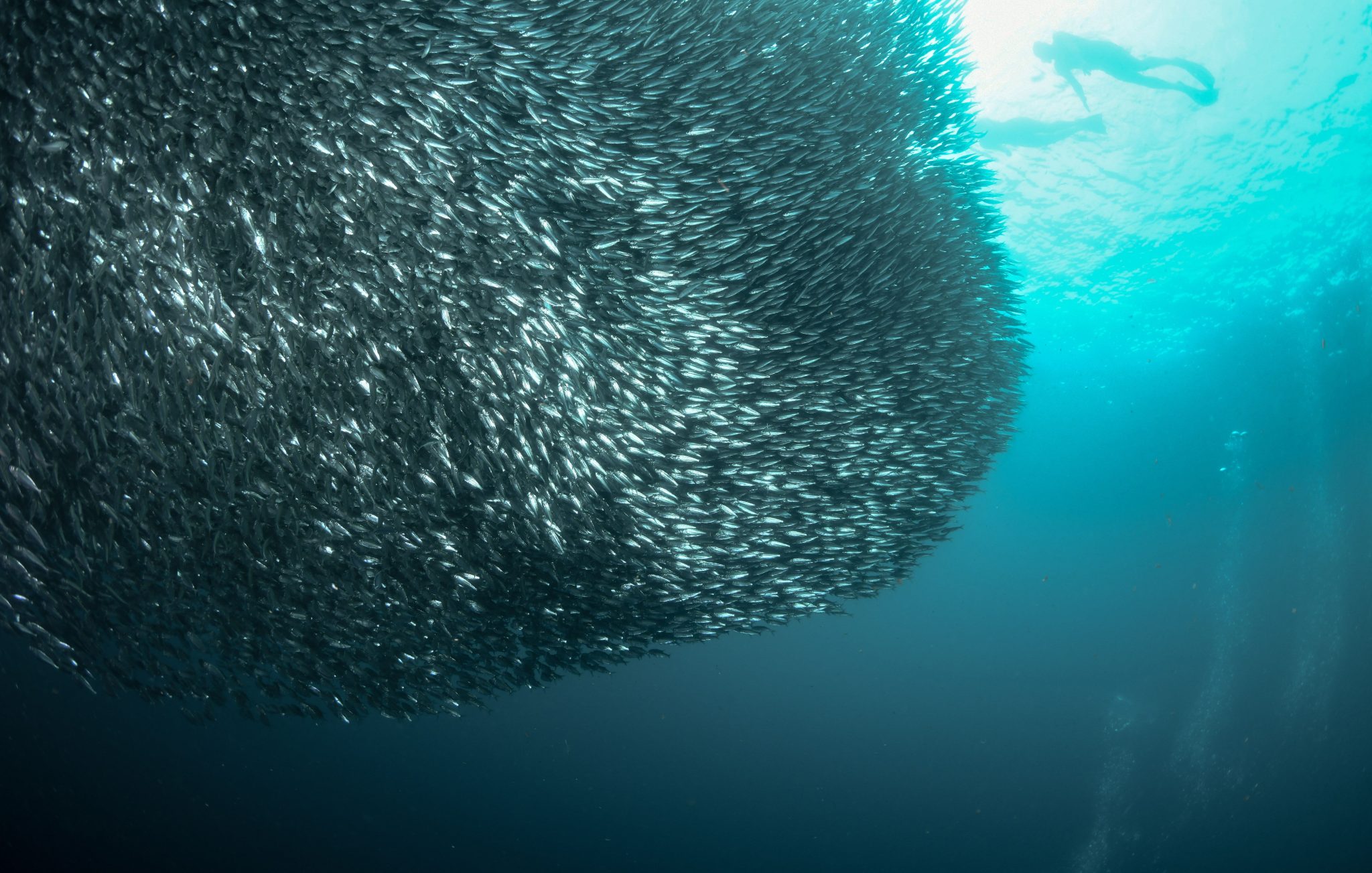
This is a feeding event of unmatched proportions. Thousands of common dolphin charge after the shoals, separating them into bait balls, with their ‘dolphin bubble technique’, bring them to the surface. Watched from the air by the cape gannets, who then launch a massive aerial assault on the sardines. They are also easy pickings for shivers of bronze whaler, dusky and black tip sharks, seals and lastly the huge mouths of Brydes (Brooders) whale that can consume an entire bait ball in one single lunge!
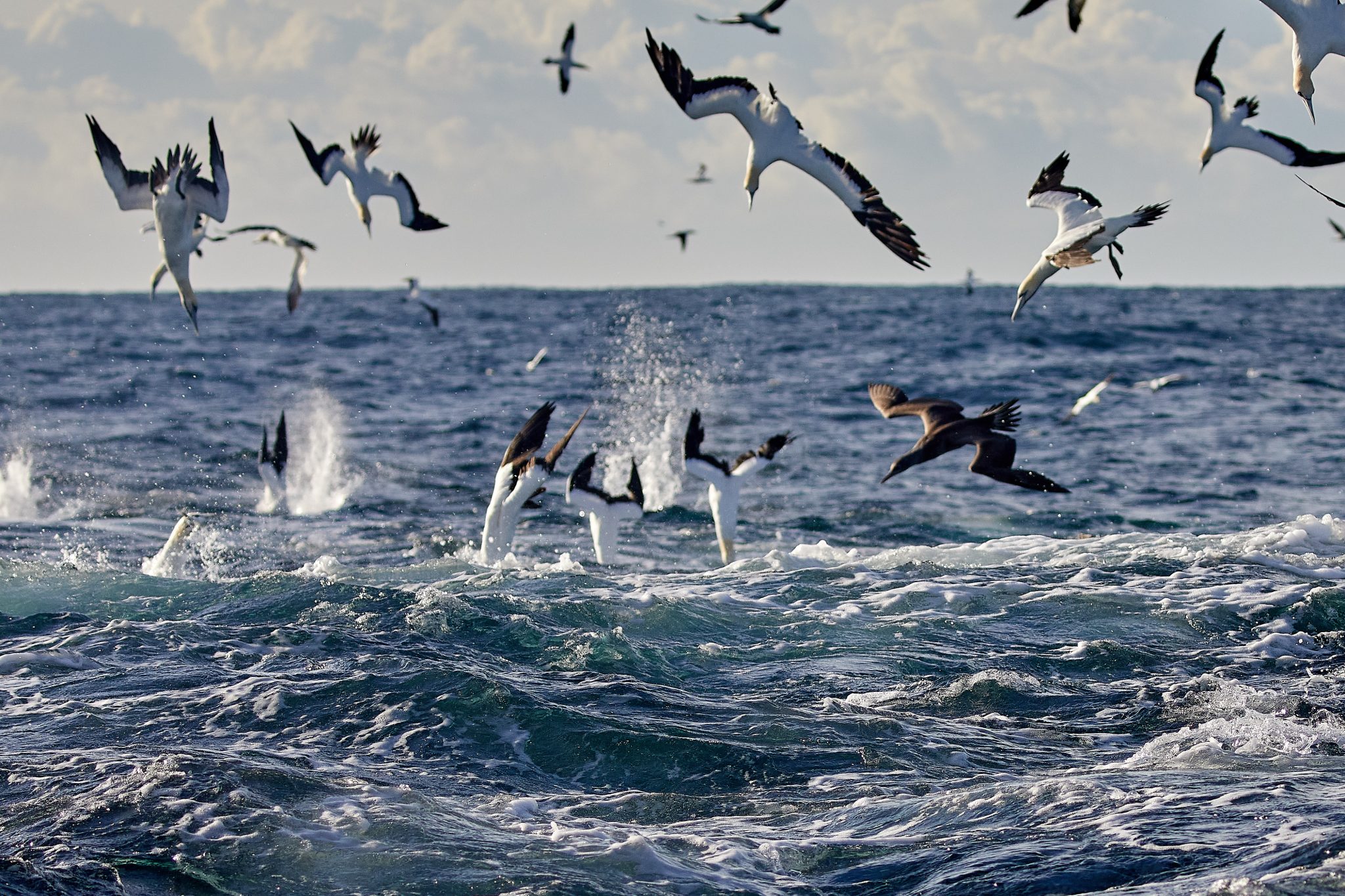
Seas4Life is offering an incredible deal for this year’s Sardine Run. Here are the details:
Date: June 23rd – July 2nd 2024
Type: Family, group, couples, solo travellers. Min of 4 pax – max 8 pax
Location: South Africa
Nights: 9 nights/10 days
Rates originally started at USD$9,705 per person 9 Nights PP, based on 5 pax on the trip. However, you can now experience the Greatest Shoal on Earth followed by some seriously unforgettable shark action for just USD$7,100 per person.
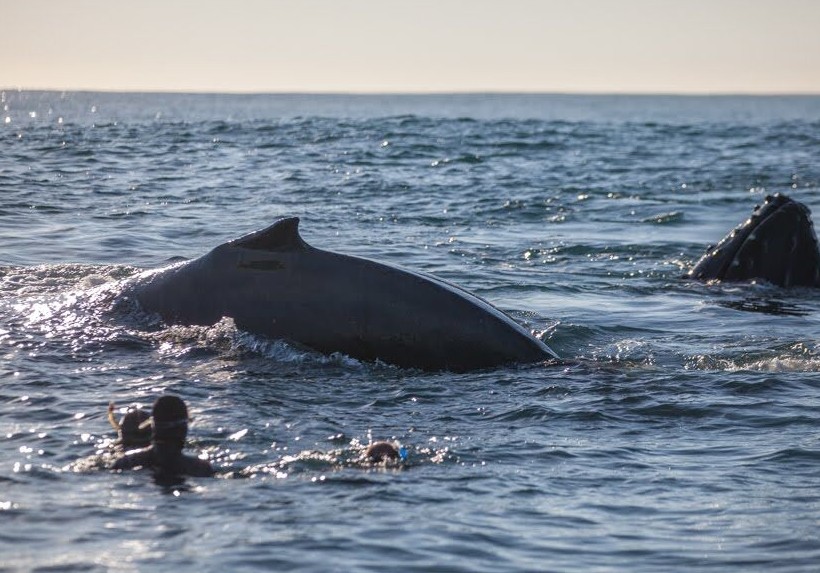
Includes:
- 5 night stay at Gulu Game Reserve (23rd – 28th June)
- 4 night stay at Africa Oceans Manor (28th June– 2nd July)
- 9 nights fully catered stay with breakfast, packed lunch and dinner
- Welcome drinks and selected alcohol (local beers, wines and spirits)
- 4 Sardine Run Days and 3 full Shark Research Days – 1 morning being with Great White
sharks - Guiding by expert marine conservationists, shark specialists and ocean enthusiasts
- Transfers to and from the airports and to and from the launch base and hotels; and on 28th June from Gulu Game Reserve to African Oceans Manor along the Southern African Coastline and parts of the Garden Route
- Privately chartered 26 foot (8m) semi-rigid dive boat (South African Maritime Safety Authority, licensed to travel up to 40 Nautical miles offshore) with two 140hp motors
- Snorkelling and scuba diving gear
- All activities as outlined in the itinerary
- Use of Gulu Private Resort and African Oceans Manor facilities including rejuvenating in their spa, use of the pool, playing tennis, hiking or fishing… (these will be charged separately if used)
- Marine conservation contribution to the shark research unit
- Offsetting your carbon through Planet Moja
- AMREF
- Lead shark scientist Nico, sardine run expertise of ScubaXursions
- Julie as lead guide
- Lots of smiles, laughter and many memories made
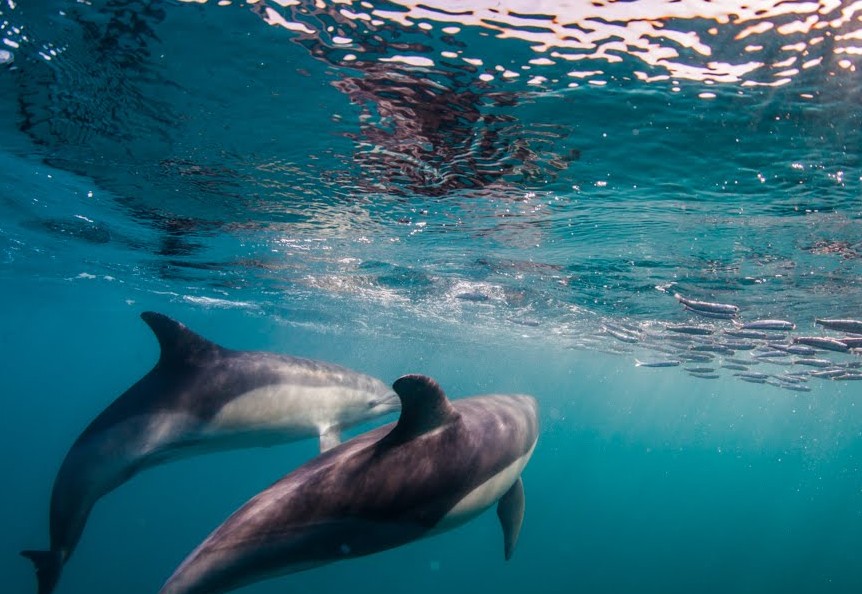
Excludes:
- International flights
- Visas and taxes (airport, government and tourist)
- Scuba diving, free diving and underwater photography courses
- Alcoholic drinks (unless stated) champagne, luxury spirits and selected wines
- Activities not outlined above
- All photographic gear
- DAN Insurance, Scuba and/or photographic gear insurance
- All additional park and/or conservancy fees if applicable
- Travel and health insurance
- Items of a personal nature
- Gratuities
For more information or to book, contact Seas4Life now:
SALES@SEAS4LIFE.COM / +254 723 639 640 / seas4life.com
Blogs
Heading out on the water this Summer? Watch for manatees
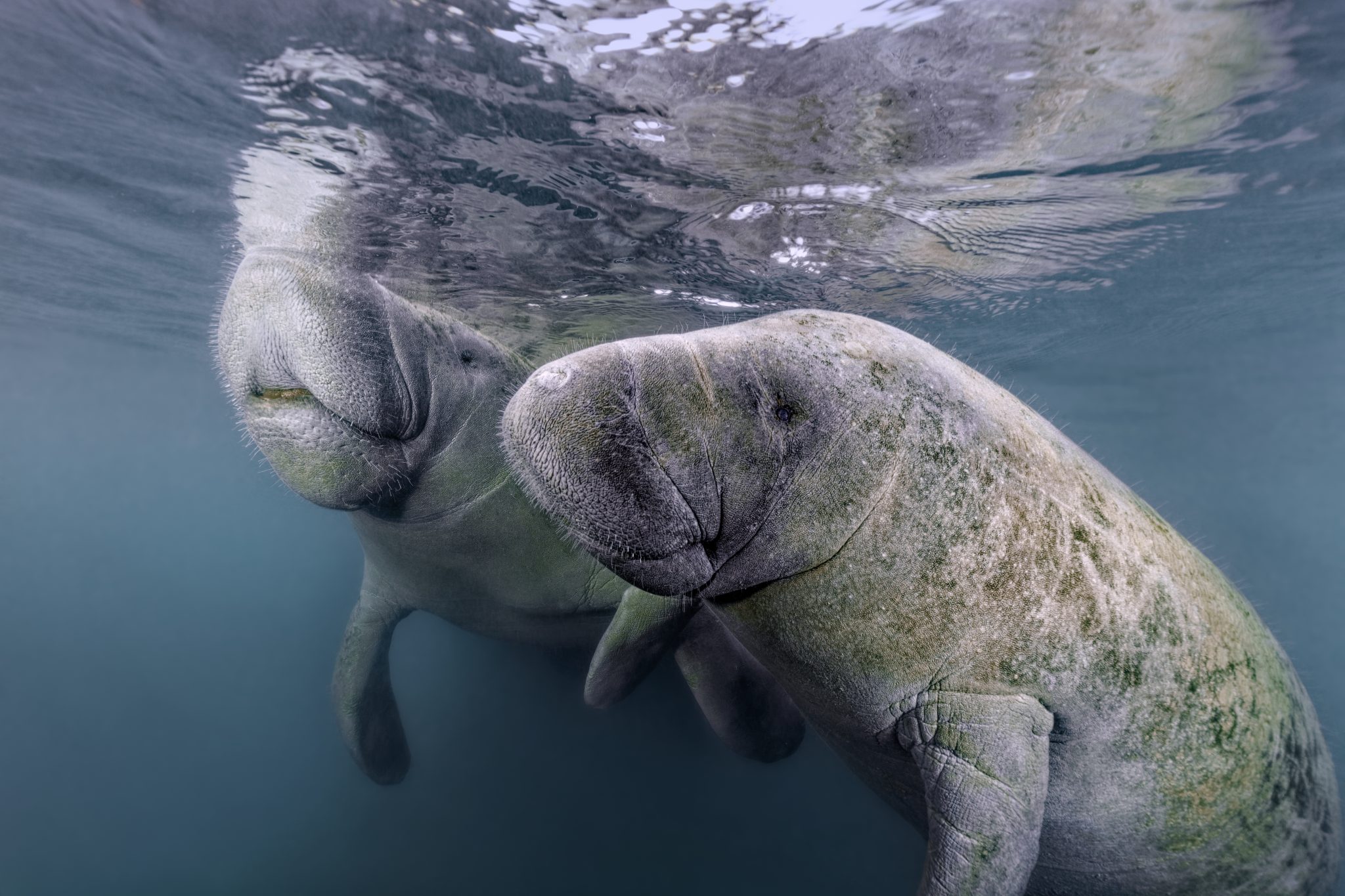
As National Safe Boating Week approaches, Save the Manatee® Club is urging boaters, and anyone that enjoys Florida’s waterways, to respect and protect the defenseless manatees that inhabit our shared waterways. From May 18 to 24, leading up to Memorial Day Weekend, the campaign aims to raise awareness about recreational boating safety and the importance of safeguarding imperiled manatees during the summer boating season. This week also emphasizes the importance of encouraging boaters to enroll in a boating safety course.
Manatees are semi-migratory marine mammals that are commonly found in shallow estuaries, bays, rivers, canals, and coastal areas throughout Florida and neighboring states. With some manatees venturing as far west as Texas and as far north as Massachusetts, collisions between these gentle giants and watercraft have become distressingly frequent. Boat propellers and high-speed collisions pose significant threats to manatees, often resulting in severe injuries or even death.
Save the Manatee Club is calling on all water enthusiasts to follow essential manatee safety tips to ensure the well-being of the imperiled manatee:
- Obey Speed Zone Signs: Familiarize yourself with and adhere to posted speed limits to prevent collisions with manatees.
- Reduce Glare with Polarized Sunglasses: Wear polarized sunglasses to enhance visibility and spot manatees below the water’s surface.
- Recognize Manatee Signs: Learn to identify signs of manatees in the area, such as swirls or flat spots on the water caused by their movements.
- Respect Manatee Sanctuaries: Keep a safe distance from posted manatee sanctuaries and avoid pursuing or harassing these marine mammals, as it is illegal and can disrupt their natural behaviors.
- Report Distressed Manatees: In Florida, promptly report distressed, injured, tagged, or orphaned manatees to the Florida Fish and Wildlife Conservation Commission (FWC) at 1-888-404-FWCC (3922). Outside of Florida, report sightings to the appropriate state agency or rescue organization. A list of agencies to contact is available at savethemanatee.org/report.
- Protect Seagrass Beds: Avoid boating over seagrass beds and shallow areas where manatees may be feeding. Stick to deep water channels while remaining vigilant, as manatees also utilize these channels during their travels.
- Dispose of Fishing Line Responsibly: Anglers should properly dispose of or recycle used fishing line to prevent entanglement hazards for manatees.
“Each year, National Safe Boating Week provides an excellent reminder for all of us to be aware that we share our waterways with vulnerable manatees,” emphasized Patrick Rose, Aquatic Biologist and Executive Director of Save the Manatee Club. “With the recent Unusual Mortality Event on Florida’s East Coast claiming an alarming number of manatees’ lives, it is more crucial than ever to prevent preventable deaths caused by watercraft collisions. By following manatee-safe boating guidelines, such as obeying speed zones and remaining vigilant for manatees, everyone on the water can contribute to the protection of these gentle giants.”
Save the Manatee Club offers a range of free materials to help safeguard manatees and raise awareness about manatee-safe boating practices. Shoreline property owners and park or marina managers can order aluminum dock signs to alert others about the presence of manatees in their areas. Boaters and paddlers can request packets containing a safety tips card, a waterproof boat banner, and a decal to display on their vessels, providing the number to report manatees in distress. To view and request these materials, visit savethemanatee.org/resources. Save the Manatee Club will also be hosting a live webinar for National Safe Boating Week on Tuesday, May 21st at 6pm EST. To register, visit savethemanatee.org/register.
-

 Gear Reviews1 month ago
Gear Reviews1 month agoGEAR REVIEW – Revolutionising Diving Comfort: The Sharkskin T2 Chillproof Suit
-

 Blogs4 weeks ago
Blogs4 weeks agoDive Indonesia Part 3: Dive into Lembeh Trip Report
-

 Blogs2 months ago
Blogs2 months agoMurex Resorts: Passport to Paradise!
-

 Blogs3 months ago
Blogs3 months agoDiver Discovering Whale Skeletons Beneath Ice Judged World’s Best Underwater Photograph
-

 News3 months ago
News3 months agoPADI Teams Up with Wellness Brand Neuro to Drive Ocean Change and Create a Blue State of Mind
-
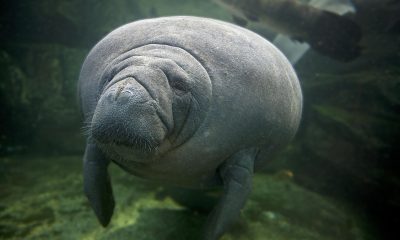
 Blogs2 months ago
Blogs2 months agoSeagrass Awareness Month brings critical food source for Manatees to centre stage
-

 Marine Life & Conservation3 months ago
Marine Life & Conservation3 months agoSave the Manatee Club launches brand new webcams at Silver Springs State Park, Florida
-
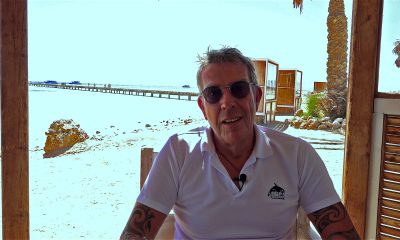
 Blogs2 months ago
Blogs2 months agoSOMABAY: Scubaverse interviews Wolfgang Clausen, General Manager, ORCA Dive Clubs


